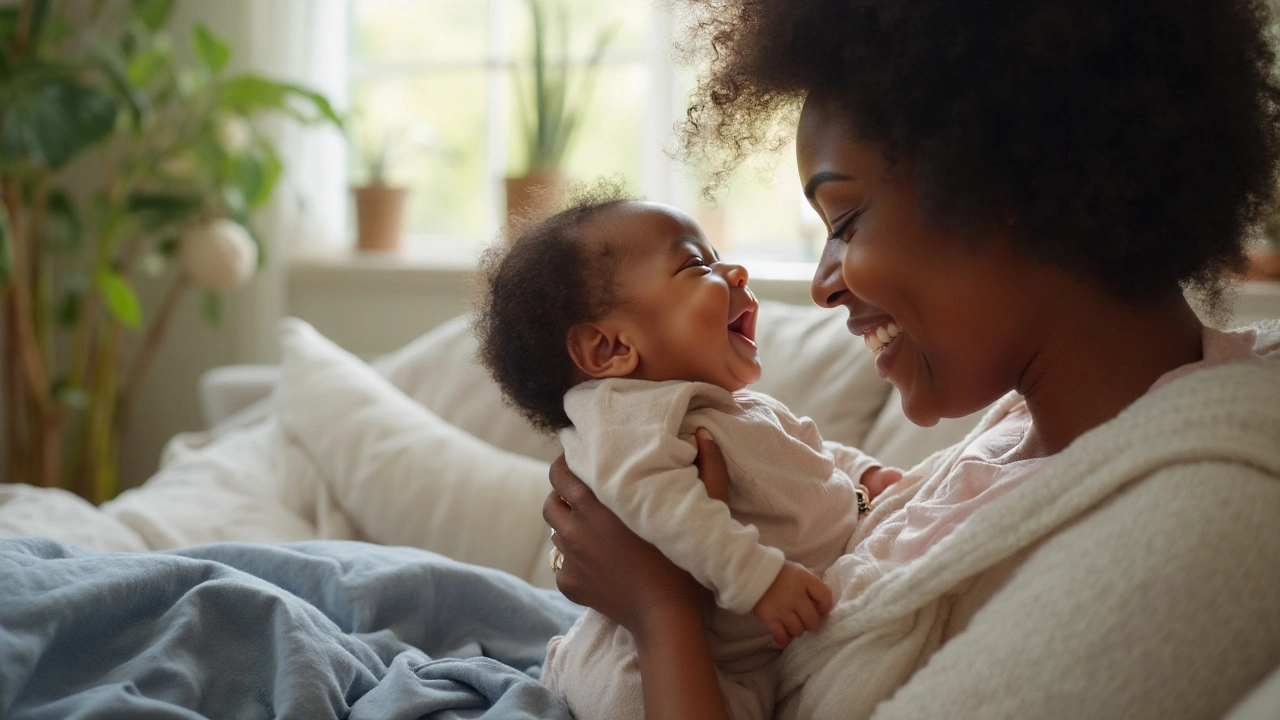Infant Social Development: What Every Parent Should Know
If you’ve ever wondered why your baby suddenly smiles at a stranger or grabs another child’s hand, you’re looking at social development in action. From birth to twelve months, babies move from reflexive reactions to intentional interactions. Understanding these steps helps you give the right support at the right time.
First 3 Months: Building Trust Through Eye Contact
Newborns are wired to notice faces. By two weeks they’ll follow a caregiver’s eyes, and by two months they start smiling back. This isn’t just cute—it’s the foundation of trust. When you hold your baby close, make eye contact, and talk in a calm voice, you reinforce that feeling of safety. Simple games like "peek‑a‑boo" turn into practice for recognizing others.
4–8 Months: Sharing Joy and Exploring Sounds
Between four and eight months babies begin to laugh out loud and copy vocal sounds. They also start reaching for toys next to them, showing early interest in sharing space. Let your infant play with soft blocks or musical rattles alongside a sibling or friend. Point out the other child’s actions – "Look, they’re shaking the toy!" – and watch your baby try to imitate.
During this stage, responsive talking matters. Responding to coos with words like "yes" or "no" teaches cause‑and‑effect, a core social skill. Even if you don’t understand their babble, echo it back. Babies learn that communication is a two‑way street.
9–12 Months: First Steps Toward Cooperation
By nine months most babies can crawl or pull up to stand, and they love exploring new environments with a caregiver’s help. This is when you’ll see the first signs of empathy – a baby might pause if another child is crying.
Encourage gentle touch by modeling it: hand your baby a soft doll and say, "Give her a hug." Offer simple turn‑taking games like rolling a ball back and forth. These activities teach patience and the idea that actions affect others.
Reading books with big pictures of families also reinforces social concepts. Point to characters, name emotions, and ask, "How do you think he feels?" Even if your infant can’t answer, hearing those words builds a social vocabulary they’ll use later.
Practical Everyday Tips
1. **Stay present** – Put the phone away during playtime. Your full attention signals that people are worth focusing on.
2. **Create routines** – Regular feeding, nap, and play schedules give babies a predictable world where social cues become clearer.
3. **Use music** – Sing simple songs with actions; clapping hands together shows coordination and shared joy.
4. **Introduce new faces gradually** – A short visit from a grandparent or friend lets the baby practice greeting without feeling overwhelmed.
5. **Follow their lead** – If your infant stops playing, respect that pause. Pushing interaction can cause stress rather than growth.
Every baby develops at their own pace, but these milestones give you a road map. Watching your child’s eyes light up when they notice a new smile tells you they’re learning to connect. Keep offering love, safe environments, and chances to interact, and you’ll see social confidence bloom as they grow.
 24 August 2025
24 August 2025
Socialization in Infancy: Why It Matters and How to Build Early Relationships
Why early socialization matters and how to do it. Simple, science-backed steps to build your baby’s relationships from day one, plus milestones and FAQs.
Latest Posts
-

Medication Dosage Adjustments for Aging Bodies and Organs
-

Tansy Essential Oil: Skin Benefits, Safe Use, and Practical Applications
-

Symptoms of Taking Counterfeit Meds: What to Watch For
-

Navigating Affordable Bactrim: A Comprehensive Guide to Sulfamethoxazole and Trimethoprim
-
Discover the Amazing Health Benefits of Banaba: The Ultimate Dietary Supplement for Weight Loss and More!

16